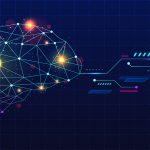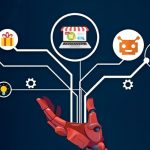The below is a summary of my recent article on The Big Shift. The world stands on the precipice of a profound technological shift, one that promises to transform industries and societies in ways previously unimaginable. This "Big Shift" towards a data-driven digital renaissance is driven by the rapid advancement of artificial intelligence (AI) and autonomous technologies, … [Read more...] about Embracing the Data-Driven Digital Renaissance: A Call for Responsible Innovation
Artificial Intelligence
Learn about the latest developments in artificial intelligence and how it is transforming industries around the world. Our website offers insights and resources for understanding AI and its applications.
Exploring the Possibilities of AI Replacing Investment Banking Jobs
The investment banking industry is in a technological transformation. Artificial intelligence (AI) acts as a great tool that has been immensely adopted in several financial services, and so has investment banking. It gives magnificent potential for businesses, which can deploy it with due care and prudence. Fraud detection, algorithmic trading, best crypto exchange, chatbots, … [Read more...] about Exploring the Possibilities of AI Replacing Investment Banking Jobs
From Large Language Models to Large Multimodal Models
Machine learning models have been operating for a long time on a single data mode or unimodal mode. This involved text for translation and language modeling, images for object detection and image classification, and audio for speech recognition. However, it's a well-known fact that human intelligence is not restricted to a single data modality as human beings are capable of … [Read more...] about From Large Language Models to Large Multimodal Models
Deepfakes: From Digital Reality to Fake Reality
The below is a summary of my article on the rise of deepfakes. The rapid advancement of technology has given rise to deepfakes - digital creations that leverage sophisticated AI to generate doctored yet strikingly realistic images, videos, and audio. Powered by advanced game engines and generative adversarial networks, deepfakes can mimic intricate facial features, expressions, … [Read more...] about Deepfakes: From Digital Reality to Fake Reality
AI for Ecommerce: From Personalization to Prediction – Discover How Robots are Transforming Retail
Imagine walking into an online mall that provides suggestions tailored exclusively for you. Imagine shelves brimming with personalized merchandise tailored just for you based on past purchases, browsing habits, and fleeting desires - no more sifting through endless options; AI becomes your invisible shopping partner, leading you to treasures you didn't even know … [Read more...] about AI for Ecommerce: From Personalization to Prediction – Discover How Robots are Transforming Retail
What is artificial intelligence (AI)?
AI refers to the development of computer systems that are able to perform tasks that normally require human intelligence, such as recognizing patterns, learning from experience, and problem-solving.
AI systems can be trained to perform these tasks through the use of algorithms and machine learning techniques, which allow them to analyze and interpret data and make decisions based on that analysis. AI has the potential to significantly improve the efficiency and accuracy of many tasks, and is being applied in a wide range of industries and applications.
How is artificial intelligence used?
AI is used in a variety of industries, including healthcare, finance, retail, and transportation, to improve efficiency and productivity.
For example, in healthcare, AI can be used to analyze medical images or electronic health records to identify patterns and make diagnoses, while in finance, it can be used to identify fraudulent activity or optimize investment strategies. In retail, AI can be used to personalize customer experiences or predict demand for products.
What are some examples of artificial intelligence?
Examples of AI include self-driving cars, language translation software, and virtual assistants like Apple’s Siri or Amazon’s Alexa.
Other examples include chatbots that can handle customer service inquiries, predictive analytics tools that can forecast future outcomes, and recommendation engines that can suggest products or content based on user preferences.
What are the potential risks and benefits of artificial intelligence?
AI has the potential to revolutionize industries and improve our daily lives, but it also raises ethical concerns and the risk of job displacement. One concern is the potential for AI systems to perpetuate or amplify biases present in the data used to train them, leading to unfair or discriminatory outcomes.
There is also the risk that AI could be used to automate tasks or make decisions that have negative consequences for humans.
On the other hand, the benefits of AI include improved efficiency and accuracy, the ability to process and analyze large amounts of data quickly, and the potential to tackle complex problems that are difficult for humans to solve.
How can I learn more about artificial intelligence?
Datafloq offers a wide range of AI articles. There are many resources available for learning about AI, including online courses, books, and industry events.
Some popular online courses include those offered by Coursera, edX, and Udacity. There are also many books on AI that provide a broad overview of the field or delve into specific topics, such as machine learning or natural language processing.
Attending industry events, such as conferences or meetups, can also be a great way to learn about AI and network with others in the field. It is important to stay up-to-date on the latest developments in the field, as AI is a rapidly evolving field with many new advances and applications emerging all the time.







